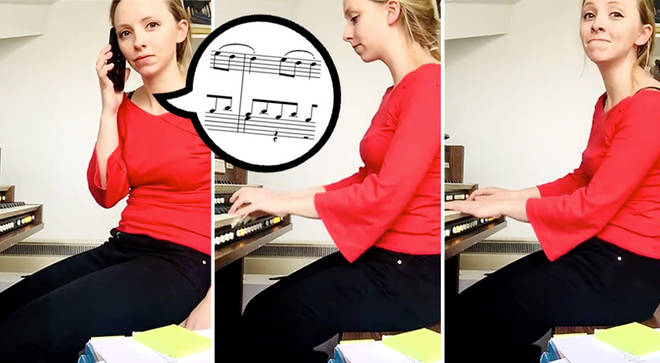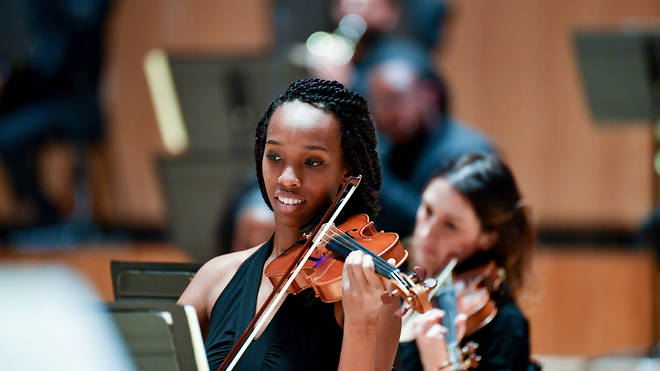... so she played along with the hold music.

Never leave a musician on hold. Especially not with a relentless, undeveloped loop of Mozart…
’s arguably most popular symphony, his No.40, has been on a long and beautiful journey since the late 18th century. It was well-liked during the composer’s lifetime, with one of the catchiest opening movements of any symphony.
Then, flash-forward nearly a quarter of a century and its first movement was reincarnated in ‘90s mobile phones, as a now-nostalgically tinny ringtone.
Now, in 2021, it appears the seven-minute movement is being used as an energy company’s on-hold music.
And while on a call to sort her energy bill, one musician was having none of it.
When she was about to hear those sweeping, opening notes for the nth consecutive time, organist and conductor decided there was only one thing for it – to provide a live accompaniment.
Taking to her electric organ at home, Anna, who is also Director of Music at Pembroke College, Cambridge, added a sprinkling of musical relief to her Mozartian Groundhog Day (watch above).
Anna first tweeted about the incessant musical loop just after 11am on 27 January, which also happened to be the .
“I have been on hold with my energy provider for 30 minutes and they are playing the first movement of Mozart 40 in an endless loop,” she tweeted her 14.5k followers.
“Worse than that, it’s just the exposition so we don’t even get any development or recap. AAAAAAAAAAA. Is this what hell feels like?”
I have been on hold with my energy provider for 30 minutes and they are playing the first movement of Mozart 40 in an endless loop. Worse than that, it's just the exposition so we don't even get any development or recap. AAAAAAAAAAA. Is this what hell feels like?
Quick theory lesson – in Sonata form, which Mozart readily uses in this famous movement, the first section is the Exposition which usually contains two contrasting themes. A Development section, that’s usually full of drama, follows before all is resolved in a Recapitulation of the first themes.
But it seems for their on-hold music, the gas and electricity supplier decided to leave their customers hanging, with just a looping Exposition – with bat-eared listeners like Anna left yearning for the never-arriving harmonic resolution of the Recapitulation.
Finally, as Anna was getting really into her live accompaniment, she was taken off hold.
“Hello?” she answers, turning the camera off, finally alone without the incessant sound of the Molto Allegro...








